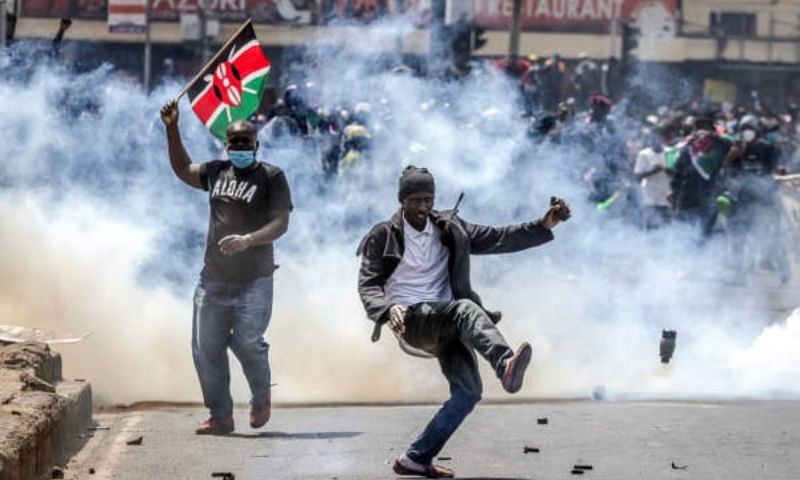NAIROBI: Activists in Kenya are rallying for renewed protests on Tuesday, rejecting President William Ruto’s calls for dialogue after he withdrew proposed tax increases.
Last week’s clashes between protesters and police, which killed at least 24 people initially erupted over a finance bill aimed at generating 346 billion Kenyan shillings ($2.69 billion) in taxes.
The demonstrations, largely organized through social media and led by youth, have since broadened in scope. Many protesters now demand an end to corruption and the resignation of President Ruto, marking the most severe challenge of his two-year presidency.
President Ruto’s televised interview on Sunday, where he defended the actions of the police and his government, appears to have further entrenched protesters’ positions.
On Monday, activists circulated pamphlets online urging people to occupy Nairobi’s Central Business District under the hashtag #OccupyCBDTuesday.
With no formal leadership, the protest movement’s future response remains uncertain following last week’s massive demonstrations, among the largest in recent Kenyan history.
In virtual discussions on social media platforms, activists are strategizing on sustaining momentum now that their immediate goal of halting the finance bill has been achieved.
President Ruto reiterated his call for dialogue with the youth during Sunday’s interview, offering to engage in forums such as X Spaces where they gather to discuss issues.
However, many protesters dismiss these dialogue overtures as attempts to co-opt their movement, citing ongoing police violence.
“You can’t dialogue with someone who is killing you,” remarked one activist during a weekend X Space session.
Defending the police’s actions, Ruto blamed “criminals” for hijacking peaceful protests in his interview. He also suggested bridging the budget gap left by scrapped tax hikes through borrowing, a stance seemingly at odds with earlier promises of austerity measures.
Finance Minister Njuguna Ndung’u acknowledged legal limits on borrowing and Kenya’s already stretched national debt, which exceeds the statutory limit of 55% of GDP.
Following the bill’s withdrawal, Ruto has urged lawmakers to pass a supplementary budget, but parliament is currently in recess.























